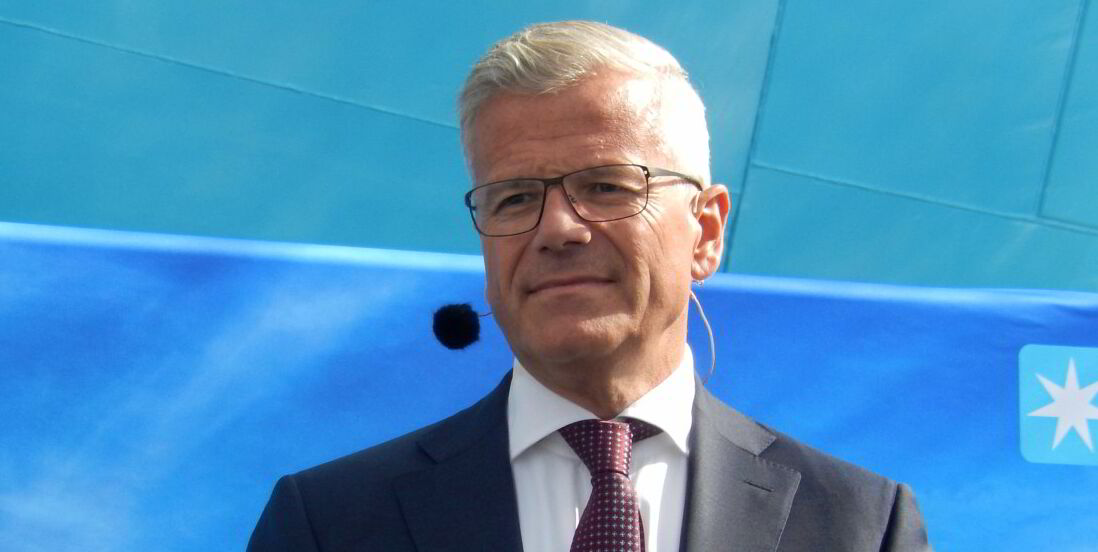AP Moller-Maersk’s calls for international governments to beef up security in the Red Sea have proved “unsuccessful”, says CEO Vincent Clerc.
He said businesses around the world can help by ensuring their governments understand they are being crippled by increased costs.
“In some regions like Europe, governments need to understand the possibility that this will reignite inflation,” Maersk said in a statement, citing comments made by Clerc at a recent online event with customers.
Since November, Yemen’s Houthi rebels have been attacking merchant shipping in the Red Sea and Gulf of Aden, trying to exert pressure on Israel to stop its war against Hamas in the Gaza Strip.
Clerc stressed that Maersk would return to sailing via the region only when the safety of seafarers, vessels and cargo is guaranteed.
Once a resolution was found, he said, ships could return to sailing their usual routes through the Suez Canal almost immediately.
“With no ‘crystal ball’ to tell how long the situation will last, Maersk is working to alleviate the impact of the disruptions. This includes doing whatever it reasonably can to bring supply in line with businesses’ demand for capacity,” he said.
Clerc said the coming months will be challenging for carriers and businesses as disruptions to container shipping in the Red Sea continue into the third quarter.
“The longer that this lasts, the more our costs will get deeply ingrained. We don’t know yet exactly how much of these costs we will recover and for how long,” he said.
“Extending rotations to travel the longer route around Africa takes two to three ships, depending on the trade in question.
“The availability of additional capacity was low to begin with and, across the industry, carriers’ ability to bring in extra tonnage has been limited. At the same time, demand for container transport has remained strong.
“Today, all ships that can sail and all ships that were previously not well utilised in other parts of the world have been redeployed to try to plug holes.
“It has alleviated part of the problem, but far from all the problem across the industry, including for Maersk.
“We are going to have in the coming month missing positions or ships that are sailing that are significantly different size from what we normally would have on that string, which will also imply reduced ability for us to carry all the demand that there is.”
Meanwhile, Maersk has withdrawn its bid for DB Schenker, the logistics unit of Deutsche Bahn that has been reported to be valued at more than €15bn ($16.1bn).
Maersk walked away from the process after participating in an in-depth due diligence over the past few weeks, according to a statement on Monday.
“We said we would look into this opportunity, and we did,” Clerc said, calling DB Schenker an interesting company with potential.
“The in-depth review also identified areas of challenges from an integration perspective and ultimately we concluded that acquiring DB Schenker would not be the right thing to do for our business at this time.”





